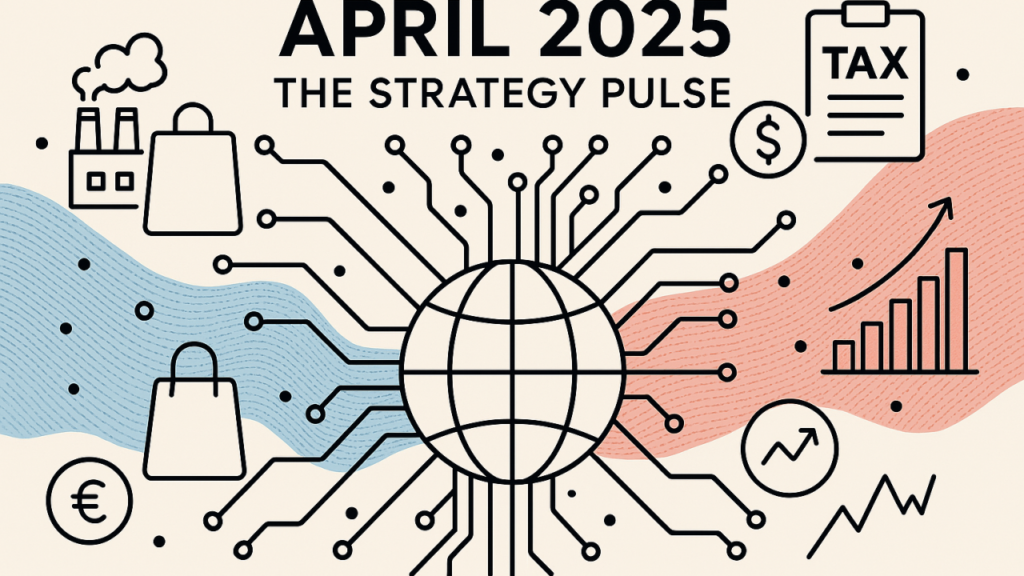
Data Digest #1: Collapsing Cookies and Resurrecting Relatives
Data Digest #1: Collapsing Cookies and Resurrecting Relatives
June 29, 2022

The cogs of the data world are perpetually turning. Data never sleeps. That’s why we’ve decided to bring you a shiny, brand-new monthly newsletter, dedicated to summarising some of the most pressing news stories that have been making waves on the data scene over recent weeks. Brace yourself for an exciting overview of some of the top data news stories that have been gracing our screens lately.
Forbes: Clean Rooms
Third-party cookies are gradually fading into the background of the data scene, becoming a mere fragment of the past. Third-party data is often clogged with irrelevant information, and the user may not have explicitly consented to passing over this data. For companies, handling third-party data is a legal minefield fraught with booby traps and distractions. Due to new user protection and privacy laws, third-party data needs to be thoroughly cleaned and filtered through. This is also necessary in order to ensure that data being collected is streamlined and useful, thus it can be leveraged by a company in order to improve the customer experience. If only there were a technology that could clean data…
Enter clean rooms. This technology seeks to filter through the noise and find the customer right customer data that aligns with privacy laws. However, clean rooms are not an airtight model. There are a few faults to the system. There are many types of clean rooms out there to choose from, and there’s also a discrepancy between privacy policies and laws in different industries. These two factors combined make navigating clean rooms and third-party data feel like trying to decipher a jumbled-up jigsaw puzzle. This is why it’s wise to steer-clear of third-party data altogether, and stick to the far more reliable first-party and zero-party data as much as possible. When the data source is high quality from the get-go, there’s less room for error. First and zero-party data is derived from a direct relationship with the customer; the company proactively reaches out to them, via survey for example, and they provide you with specific information. This type of data is vital when it comes to building out a positive customer journey from a marketing perspective.
Clean rooms have the capacity to serve as an indispensable tool. But in order to truly get the most out of this technology, companies need to be collecting the right kind of data from the outset. Leveraging information that comes from first and zero-party sources ensures that the data being cleaned is not polluted from the get-go, thus cutting out a huge chunk of confusion and complication from the process.
Forbes, Are Clean Rooms the Answer to Data Privacy and a Killer Customer Experience?
The Guardian: Roe v Wade Overturned, User Data at Risk
Last week, the US was shook to its very foundation by the decision of the Supreme Court to overturn Roe v Wade; a decision which has already led to an outright ban on abortion in a significant number of US states. In the wake of this news, pro-choice and civil rights activists have called upon tech companies to secure user data against the government.
There’s concern over data privacy laws, as there’s every chance that law enforcement officials may issue subpoenas to tech companies in order to access ‘evidence’ to support abortion prosecutions, such as internet searches and communication history. There have already been instances of this happening; one woman’s internet search for abortion pills was used against her as evidence in court. This is a worrying and distressing prospect, and yet many tech giants are yet to reassure their users that their data will remain private and out of the hands of law enforcement officials. Meta and Uber are just two of the companies who still haven’t commented or issued a statement on the subject.
Many activists are also concerned about the data being collected via period tracking apps. Warnings have been circulating online and going viral for users to delete their tracking apps, in case the government is able to access information about a woman’s reproductive health as a method of surveillance. Many of these smaller tech companies, such as period tracking app Clue, have responded to these concerns in a bid to reassure their users. Activists are currently advising tech companies to retain as little personal data on their users as possible in order to keep them anonymous, should law enforcement officials attempt to get their hands on company data. Many tech firms are in the process of trying to navigate this complex dilemma, in order to protect their users and keep their data private.
The Guardian, Tech Firms Under Pressure to Safeguard User Data as Abortion Prosecutions Loom
BBC: The Downfall of Cookies
By now, we’re all too well-acquainted with those pesky cookies that pop-up on websites every time you visit. We’ve simply gotten used to them; they’re part and parcel of using the internet nowadays. However, this could all change in light of the UK government’s proposed reforms to data privacy. As it stands, users are asked to consent to the use of cookies on every website they visit. Cookies track what you get up to on the website, which websites you visit after you leave, and your location, amongst other things. By leveraging this information, companies can tailor bespoke adverts for each individual user who visits the site. This permits users to access many websites for free, as advertisements act as their funding source.
The UK government is planning to overhaul this system, replacing it with a single data privacy setting on the overarching browser rather than on the granular level of each individual website.
Reactions to this plan have been mixed. Whilst Culture Secretary Nadine Dorris claims that the plan would be ‘cementing post-Brexit Britain’s position as a science and tech superpower’, privacy activists are less than convinced. The plan is still unclear and there is no strategy set in stone, but there are whispers of an ‘opt out’ button as opposed to an ‘opt in’ option, which, in the eyes of many privacy campaigners, is highly unethical and sneaky, as it makes it the user’s responsibility to prevent themselves from being tracked. There is still no concrete blueprint for the new policy; it’s still very much up in the air. It’s likely that it will be a while yet before any major shift in data privacy and cookie policy materialises.
BBC, Can Crumbling Cookies Sweeten UK Data-Protection Plans?
The Wall Street Journal: Can Insurers Leverage Data to Predict and Prevent Storm and Flood Damage?
For the past six years, Atlantic hurricane activity has gone through the roof, reaching all-time highs. As we edge towards this year’s hurricane season, which spans June to November each year, insurers are gearing up for any potential losses by turning to data analysts and climate scientists, whose foresight they hope will better prepare them for the inevitable storm and flood damage to come.
Many new technologies and tools are proving to be pivotal in the run-up to hurricane season. One particular technology blends aerial images with machine learning in order to gauge the flood risk associated with each individual building at granular level, as some buildings on the same street may be more vulnerable than others. This information provides insurers with a deeply accurate foresight, which they can pass onto their clients in order to help them better prepare and prevent as much potential loss as possible. Last year’s Hurricane Ida demonstrated just how costly heavy flooding can be; it resulted in $36 billion in insured losses, and thus better modelling for the future is the key to avoiding such heavy damages.
Insurers are collaborating with data analysts and climate scientists to develop a more robust system in preparation for hurricane season. If clients are able to make substantial changes or preparations before the flood or storm strikes, insurers will not have to pay out as much in the aftermath. It’s a win-win for both company and client. Nowadays, with more instances of extreme weather than ever before, insurers need to adapt along with our changing climate in order to support their clients in the long-run.
The Wall Street Journal, Insurers Harness Data to Help Clients Weather Storms, Floods
Analytics Insight: Alexa Bringing Dead Relatives to Life
Just when we thought Alexa’s conversation abilities couldn’t get any better, something incredible happens. Alexa is no longer simply a virtual assistant who plays music on request or tells you the weather; it’s now capable of mimicking voices, including those belonging to the dead. Yes, you heard that right. Alexa can imitate the voices of deceased loved ones. Whilst the Bluetooth speaker has not yet released this new offering, it’s very much in the works as we speak. AI is developing at a rapid pace in every industry nowadays, and Amazon have no intention of being left behind. This latest development will be made possible by voice data accumulated from recorded audio, combined with Alexa’s advanced voice recognition algorithm.
It’s a controversial move, without a doubt. Some find the prospect creepy, probably feeling as if they’ve fallen into a dystopian near future that resembles the world of Kazuo Ishiguro’s novel Klara and the Sun, where grief is subverted by using robots to replace loved ones. However, many people are ushering in the development with open arms. A lot of users are excited by the prospect, seeing it as an opportunity to bring memories back to life and reconnect with deceased loved ones in an intimate and poignant way.
Analytics Insight, “My dead grandmother read me a bedtime story”, Alexa Made It Possible

